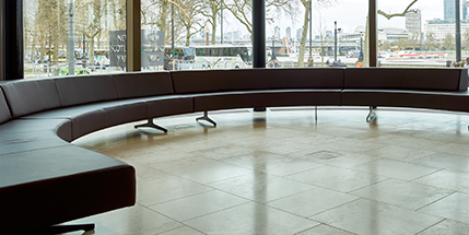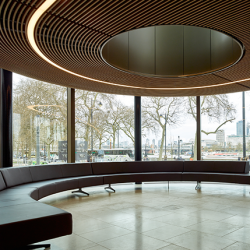October 18, 2017
Calls for commercial property sector to have a greater focus on customer experience
 The UK commercial property industry is undergoing a fundamental shift towards a more customer centric approach, with an increasingly greater emphasis being placed on delivering outstanding customer service to occupiers. This is the key finding of a new report from The British Council for Offices (BCO) entitled ‘Office Service Standards and Customer Experience: a best practice guide’. While for those who hold a very traditional landlord occupier relationship this change in thinking, attitude and operation may feel revolutionary, the report argues we are already seeing the industry evolve across the board. It claims that this is accelerated by new ‘property sector disruptors’, who are driving a shift in the relationship between property owners and corporate occupiers. To ensure they are keeping pace with their changing requirements and aspirations, property owners and managers are increasingly realising the need to invest in building strong relationships with their occupiers
The UK commercial property industry is undergoing a fundamental shift towards a more customer centric approach, with an increasingly greater emphasis being placed on delivering outstanding customer service to occupiers. This is the key finding of a new report from The British Council for Offices (BCO) entitled ‘Office Service Standards and Customer Experience: a best practice guide’. While for those who hold a very traditional landlord occupier relationship this change in thinking, attitude and operation may feel revolutionary, the report argues we are already seeing the industry evolve across the board. It claims that this is accelerated by new ‘property sector disruptors’, who are driving a shift in the relationship between property owners and corporate occupiers. To ensure they are keeping pace with their changing requirements and aspirations, property owners and managers are increasingly realising the need to invest in building strong relationships with their occupiers





















 The majority (94 percent) of workers are open to flexible ways of working such as part-time, freelance, contract, temporary or independent contract work a new report from ManpowerGroup has revealed. Coining the trend as NextGen work, the research suggests this approach to a job is a choice (81 percent) not a last resort (19 percent). Findings from #GigResponsibly: The Rise of NextGen Work – a global survey of 9,500 people in 12 countries – identifies a shift towards this new way of getting work done, and that it works for people and employers. People were asked how they want to work, what motivates them and their views on NextGen Work. More control over their schedule (42 percent), boosting their bank account (41 percent) and developing new skills (38 percent) are top reasons why this flexible kind of work is on the rise. The report also found that this flexible approach is not just attractive to Millennials, as meaningful work and employer appreciation are valued more by Boomers than any other generation. More than 80 percent of US workers say NextGen Work is a choice, not a last resort, and builds resilience for less predictable futures.
The majority (94 percent) of workers are open to flexible ways of working such as part-time, freelance, contract, temporary or independent contract work a new report from ManpowerGroup has revealed. Coining the trend as NextGen work, the research suggests this approach to a job is a choice (81 percent) not a last resort (19 percent). Findings from #GigResponsibly: The Rise of NextGen Work – a global survey of 9,500 people in 12 countries – identifies a shift towards this new way of getting work done, and that it works for people and employers. People were asked how they want to work, what motivates them and their views on NextGen Work. More control over their schedule (42 percent), boosting their bank account (41 percent) and developing new skills (38 percent) are top reasons why this flexible kind of work is on the rise. The report also found that this flexible approach is not just attractive to Millennials, as meaningful work and employer appreciation are valued more by Boomers than any other generation. More than 80 percent of US workers say NextGen Work is a choice, not a last resort, and builds resilience for less predictable futures.











October 19, 2017
How our smartphones stop us from living in the moment
by Joelle Renstrom • Comment, Technology, Wellbeing
(more…)